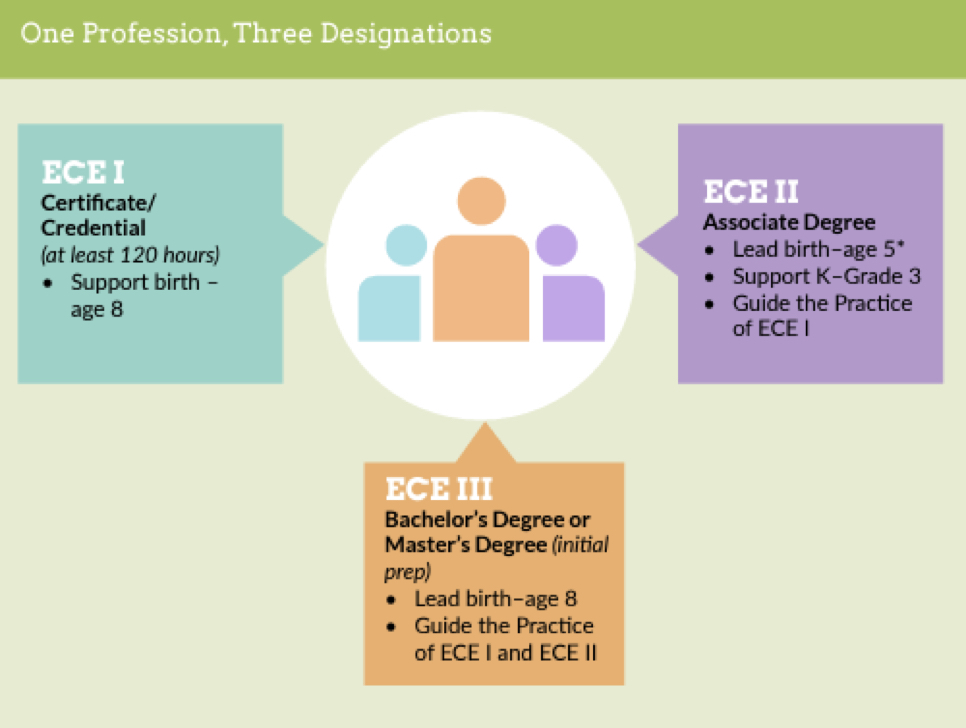Many professions have different skill requirements, certification programs, and degree levels to excel in that chosen profession. Take, for example, the nursing field, where there are several different designations: Certified nursing assistants (CNAs), licensed practical nurses (LPNs), and registered nurses (RN), all with varying types of degrees and exam certifications required for each. However, that was not always the case.
Like the early childhood education field, where today the workforce has many different labels, designations, and roles that vary within and across states, sectors, and settings, there is a concerted effort to establish unity and clarity around the career pathways, knowledge, and competencies, qualifications, standards, accountability, supports, and compensation to define the early childhood education professionals across all states and settings.
In Detroit, we need to create 22 thousand quality seats to ensure access for families, and to fill those seats; we need 2,600 new teachers. Hence, establishing clarity around early childhood educators, what they are accountable for, and how best to support them is an investment in our people and children. When we help educators, we help children and families.
In partnership with the Corporation for a Skilled Workforce (CSW), Hope Starts Here is creating a Career Lattice that provides current and potential ECE professionals with information about career options and advancement within the ECE field.
The Career Lattice is building upon the MI Registry Career Pathway foundational levels and the recommendations in the Unifying Framework for the Early Childhood Education Profession developed by 15 leading national organizations representing members of the early childhood field across states, settings, and age groups. This framework defines the standards, qualifications, roles, supports, and compensation for educators working with children from birth through age eight.
One Profession, Three Designations
The framework creates three distinct and meaningful designations i n response to the numerous titles within the ECE field: Early Childhood Educator I, II, and III. Each designation has an associated scope of practice, expected level of professional preparation, and expected mastery of the newly revised Professional Standards and Competencies for Early Childhood Educators.

Individuals serving in ECE I, II, and III roles may work as part of teaching teams and receive training through programs of study in early childhood education aligned to the appropriate depth and breadth of the Individuals serving in ECE I, II, and III roles may work as part of teaching teams and be prepared through programs of study in early childhood education that align to the appropriate depth and breadth of the Professional Standards and Competencies.
ECE I individuals must earn an industry-recognized national credential like the Child Development Associate® (CDA) national credential and other portable credentials. ECE II individuals must earn an early childhood education associate degree, and ECE III individuals must earn an early childhood education bachelor’s degree or initial master’s degree.
Compensation (including benefits) will increase with greater responsibility, preparation, and alignment with comparable roles in public K–12 settings. The deep need for increased investment (for compensation and more) cannot come on the backs of parents or educators. Additional state investment is necessary until we achieve the systems that we need. To learn more about the true-cost-of-care, click here.
Our work is by no means completed, and over the next several months, we’ll continue to update you on the progress and highlight various aspects of the Career Lattice.
